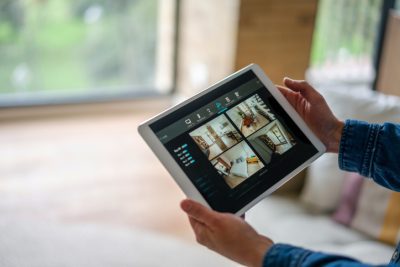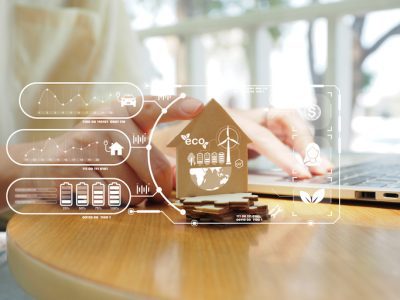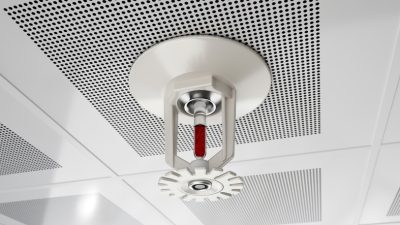
What Does a Building Management System (BMS) Monitor?
- What Exactly Does a Building Management System (BMS) Monitor?
- 1. HVAC Systems & Climate Control
- 2. Lighting Systems
- 3. Security & Access Control
- 4. Energy Consumption & Efficiency
- 5. Fire & Safety Systems
- Advanced BMS Monitoring Capabilities
- Why Comprehensive BMS Monitoring Matters for UK Businesses
- Maximise Your Building’s Efficiency Today
Have you ever wondered just how much money and energy your building might be wasting without effective BMS monitoring? Surprisingly, many facility managers and building owners in the UK still overlook this valuable tool. As a result, a fair few may have increased their operational costs by thousands. With real-time insight into your HVAC, lighting, security, and energy usage, a Building Management System (BMS) is the way forward. It lets you monitor in real-time and helps businesses save on energy costs, avoid costly downtime, and meet UK Building Regulations easily. Put simply, picture a system that spots issues right away, and predicts and stops failures before they occur. Intrigued? Read on to see how BMS monitoring can raise your building’s efficiency, improve comfort for occupants, and boost your profits. This article explores the key aspects of BMS monitoring and why it is vital for modern facilities.
What Exactly Does a Building Management System (BMS) Monitor?
A BMS is designed to oversee multiple aspects of a building’s operation, ensuring everything runs smoothly while optimising energy usage and reducing costs. Below are the primary areas a BMS monitors, along with the benefits they bring. Here’s what a BMS typically keeps an eye on:
1. HVAC Systems & Climate Control
Maintaining a comfortable indoor environment is essential for both productivity and occupant well-being. A BMS helps manage heating, ventilation, and air conditioning (HVAC) systems to ensure efficient operation and cost-effective performance.
- Temperature regulation – Adjusts heating and cooling in response to occupancy levels and external weather conditions.
- Humidity control – Maintains balanced moisture levels to prevent dampness and improve air quality.
- Airflow optimisation – Ensures fresh air is circulated efficiently while managing ventilation rates.


2. Lighting Systems
Lighting accounts for a significant portion of a building’s energy consumption. A BMS automates lighting control to reduce energy waste while improving comfort and security.
- Indoor lighting control – Adjusts brightness based on occupancy sensors and daylight levels.
- Outdoor lighting management – Activates security lighting and adjusts brightness according to the time of day.
- Energy efficiency tracking – Monitors lighting usage to identify areas for improvement.
3. Security & Access Control
A BMS integrates with security systems to manage access control, surveillance, and emergency response, keeping occupants and assets safe.
- Access monitoring – Tracks who enters and exits the building, preventing unauthorised access.
- Integrated CCTV surveillance – Provides real-time monitoring and security footage storage.
- Emergency alerts – Connects with alarm systems to trigger instant responses during security threats.


4. Energy Consumption & Efficiency
Monitoring energy usage helps facility managers identify inefficiencies and reduce operational costs. A BMS provides insights into electricity, water, and gas consumption, allowing for data-driven decision-making.
- Electricity monitoring – Tracks power usage across different zones and times to detect overuse.
- Water and gas tracking – Identifies wasteful consumption and potential leaks.
- Optimisation recommendations – Uses data analytics to suggest ways to reduce energy costs.
5. Fire & Safety Systems
Fire safety is a critical aspect of building management. A BMS ensures all fire prevention and emergency response systems are in working order.
- Fire alarm system monitoring – Checks the status of smoke detectors and fire alarms.
- Sprinkler system readiness – Ensures fire suppression systems are fully operational.
- Emergency lighting & signage – Maintains visibility of evacuation routes and emergency exits.


Advanced BMS Monitoring Capabilities
Modern BMS systems provide comprehensive real-time, energy analytics that empower facility managers to:
- Pattern Identification – Spot energy waste patterns. This helps in taking specific steps to cut down usage and save costs.
- Cost Reduction Strategies – Analyse energy usage data to implement strategies that significantly lower energy bills.
- Environmental Impact Reduction – Reduce energy use to lower the building’s carbon footprint. This helps support wider ecological sustainability goals.
For example, schools in Hampshire have used solar panels to reduce energy costs by 30%. This shows how effective advanced BMS analytics can be.
Why Comprehensive BMS Monitoring Matters for UK Businesses
Implementing an advanced BMS provides numerous benefits, making it a valuable investment for businesses, landlords, and facility managers.
- Reduced operational costs – Smart automation and energy tracking lower electricity, water, and gas expenses.
- Regulatory compliance – Ensures buildings meet UK health, safety, and energy efficiency regulations.
- Enhanced occupant comfort – Keeps indoor spaces at optimal temperature and air quality levels.
- Improved security & safety – Provides 24/7 monitoring for access control and fire safety systems.

Maximise Your Building's Efficiency Today
The first step to a smarter, greener facility is knowing what a Building Management System (BMS) tracks. With BMS monitoring, you don’t just react to problems. You anticipate them. This way, your building stays efficient and safe.
Take control of your building’s operations with confidence. BMS monitoring is not just an option; it’s necessary in today’s fast-paced world, where efficiency and safety go hand in hand. Contact Asbury Heating today for a free consultation and see how easy it is to enhance your facility’s operations.
Call 01202 745189 or get in touch and take your first step towards a more efficient tomorrow.
















